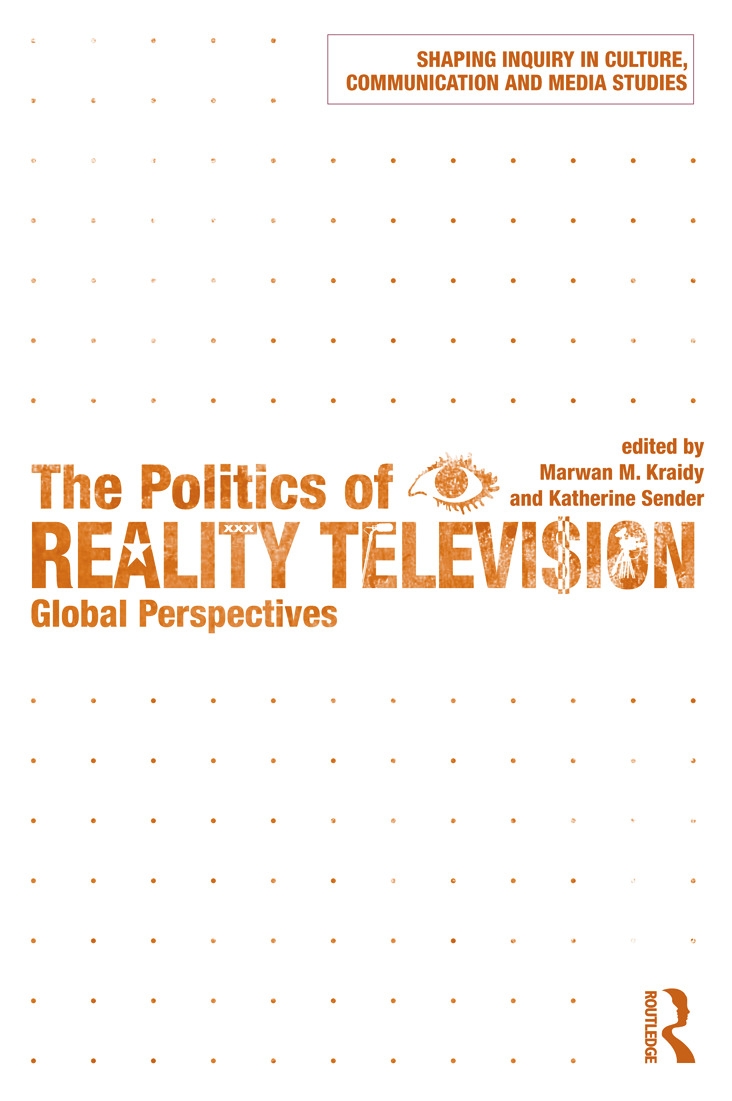Reality television is global. Transnational television companies and international distribution networks facilitate the worldwide circulation of popular shows; the 1990s in particular saw the growth of media companies that specialize in the development of reality television formats that are easily adaptable to local variations. While the industrial history of the global migrations of reality television is well established, there has been less consideration of the theoretical and methodological implications of this expansion.
The Politics of Reality Television encompasses an international selection of expert contributions which consider the specific ways these migrations test our understanding of, and means of investigating, reality television across the globe. The book addresses a wide range of topics, including:
-the global circulation and local adaptation of reality television formats and franchises
-the production of fame and celebrity around hitherto "ordinary" people
-the transformation of self under the public eye
-the tensions between fierce loyalties to local representatives and imagined communities bonding across regional and ethnic divides
-the struggle over the meanings and values of reality television across a range of national, regional, gender, class, and religious contexts.
The Politics of Reality Television proposes ways in which we can think through the international dimensions of reality television in the context of highly mobile media, politics, and publics. It offers a global, comparative examination of reality television alongside empirical research about the genre, its producers, and consumers.
This book will be of interest to undergraduate and postgraduate students on a range of Media and Television Studies courses, particularly those on the globalization of television and media, and reality television.
Marwan M. Kraidy is Associate Professor of Global Communication at the Annenberg School for Communication at the University of Pennsylvania. His books include Reality Television and Arab Politics: Contention in Public Life (2009) and Hybridity, or, The Cultural Logic of Globalization (2005).
Katherine Sender is Associate Professor of Communication at the Annenberg School for Communication at the University of Pennsylvania. Her books include Business not Politics: The Making of the Gay Market (2004) and Makeover Television and its Audiences (forthcoming).
| FindBook |
有 1 項符合
The Politics of Reality Television: Global Perspectives的圖書 |
 |
The Politics of Reality Television: Global Perspectives 作者:Kraidy,Marwan M.(EDT)/Sender,Katherine(EDT) 出版社:Taylor & Francis 出版日期:2010-10-25 語言:英文 規格:平裝 / 225頁 / 1.3*15.2*22.9 cm / 普級 / 單色印刷 |
| 圖書館借閱 |
| 國家圖書館 | 全國圖書書目資訊網 | 國立公共資訊圖書館 | 電子書服務平台 | MetaCat 跨館整合查詢 |
| 臺北市立圖書館 | 新北市立圖書館 | 基隆市公共圖書館 | 桃園市立圖書館 | 新竹縣公共圖書館 |
| 苗栗縣立圖書館 | 臺中市立圖書館 | 彰化縣公共圖書館 | 南投縣文化局 | 雲林縣公共圖書館 |
| 嘉義縣圖書館 | 臺南市立圖書館 | 高雄市立圖書館 | 屏東縣公共圖書館 | 宜蘭縣公共圖書館 |
| 花蓮縣文化局 | 臺東縣文化處 |
|
|
圖書介紹 - 資料來源:博客來 評分:
圖書名稱:The Politics of Reality Television: Global Perspectives
|









![114年台電新進雇員配電線路類超強4合1[國民營事業] 114年台電新進雇員配電線路類超強4合1[國民營事業]](https://media.taaze.tw/showLargeImage.html?sc=14100121137)

